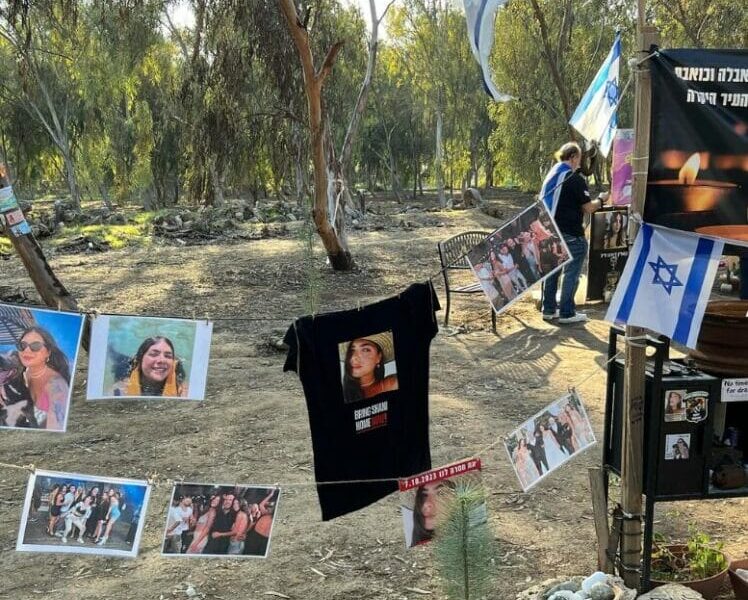Immediately following the Six-Day War I doubt anyone thought the West Bank, seized in the fighting with Jordan, which occupied it at the time, would still be largely held by Israel nearly 50 years later. (I am not referring to people whose religious beliefs regard the conquering of Judea and Samaria, the historical birthplace of the Jewish people, as divinely destined and historically justified.)
In the weeks leading up to the war, Egypt, Syria and Jordan amassed troops and heavy weaponry along our borders and launched intense psychological warfare promising mass destruction just 22 years after the Holocaust. With that buildup, there was such relief that the war did not result in the destruction of Israel and elation following the decisive victory. Ironically, a still naïve Israel believed that peace would be imminent because the trounced Arab nations would be willing to sign accords in exchange for Sinai, the Golan Heights and the West Bank. Moshe Dayan was famously quoted when he said that we are waiting for a phone call. That phone call never came. A wake-up call did come, however, six years later.
Today’s reality is vastly different from anything imagined in the immediate aftermath of 1967. The war was obviously an event of historical proportions, mainly because it signified Israel was here to stay, but also because suddenly Israel was in control of large territories, and in the West Bank a large Arab civilian population. I am writing this column on Israel’s 68th Independence Day, and the West Bank is today the most complex and vexing obstacle facing Israel. The West Bank has developed into the perfect example of the cliché “can’t live with it, can’t live without it.” Every day this reality is brought home to us in some way. The ongoing rule over large numbers of hostile Palestinians continues to create profound moral and political dilemmas for Israeli society. But there has never been a truly viable option to leave these territories entirely in the hands of a corrupt Palestinian Authority that has not internalized Israel’s right to exist.
They certainly had their chances. They could have had independence; they chose terror. If the Palestinian authorities were to hold free elections in the West Bank, Hamas would win decisively. With the spread of ISIS ideology through the entire disaffected Sunni world, I believe if Israel and the West were not propping up the Palestinian Authority with money, security, aid and other means, soon missiles would rain down on central Israel, small-arms fire would paralyze Ben-Gurion Airport and Israeli civilians in or near the West Bank would be in more danger of being murdered in a grisly fashion.
Current conditions require us to maintain overall control of the West Bank, but we are paying a heavy price because of it. The West Bank is the most divisive issue in Israeli society. The right maintains nothing short of complete control is essential for security and is justified historically. The left agrees it is the historical birthplace of the Jewish people and an important security asset, but maintains that controlling or absorbing an additional 1.8 million Palestinians will mark the end of the Zionist dream of a Jewish and democratic Israel.
When violence erupts in the West Bank, reactions are based on political orientation. One April event in the outskirts of Hebron sharpened this divide further. An IDF patrol was attacked by two knife-wielding terrorists. Two soldiers were injured, but one was able to fire his weapon, killing one terrorist and seriously injuring the other, leaving him neutralized. So far, nothing abnormal in what has become a very sad routine.
But as reinforcements and medical personnel arrived, a soldier from the unit of the two injured soldiers, in blatant violation of clear IDF regulations, shot the critically wounded Palestinian in the head, killing him.
The soldier was immediately disarmed and placed in detention pending the unit and Military Police investigation. A few days later “B’tselem” (the Israeli human rights NGO) released a video showing the soldier, Elor Azariya, cocking his M16 and shooting the dying terrorist. This event, known simply as the “Parshat hachayal hayoreh” (the case of the shooting soldier), has become one of the most controversial incidents in recent memory.
The release of the video compelled the prime minister, defense minister and the chief of staff to react swiftly. Netanyahu condemned the shooting, Defense Minister Ya’alon stated this was an intolerable excess and Chief of Staff Eisenkot had the soldier taken from his unit, arraigned in a military court and placed in lock-up until charges were brought. Vocal right-wing politicians, activists and their supporters immediately were up in arms over what they termed the IDF top brass reaching a “verdict” prior to the conclusion of the investigation. On social media they incited against Ya’alon, Eisenkot and the IDF in general. Many unashamedly called Azaria a hero for putting a bullet in the head of a terrorist, ignoring the fact that he was completely immobilized by the completely justified bullets shot by the soldier who fought off the attack. They protested over what they saw as the soldier’s humiliation at being dragged in uniform handcuffed before a military judge with the media present. Some ministers echoed Azaria’s defense lawyers claiming the soldier was acting in self-defense because he suspected the terrorist was wearing an explosive belt and his knife was within reach.
Azaria’s family said he was being abandoned by those who sent him to fight.
The massive support for Azaria expressed on social media came as a shock to many, particularly the IDF and the defense establishment, who have a proven record in investigating and meting out punishment for operational excesses and violations of the well-defined IDF code of ethics. Even Netanyahu, seeing the tsunami of right-wing support for the soldier, found a somewhat devious way to express support while not contradicting his initial criticism. He personally telephoned Azaria’s father saying that as a father of a soldier, he understood his worries and concerns.
Despite the overwhelming evidence against Azaria, any attempt to insinuate guilt before the investigation was completed is unacceptable. Much of the support for Azaria was a protest against the right’s false perception that he had already been judged by the IDF and the media.
And this is where my major issue lies. It is inevitable that young soldiers will make mistakes when they are serving in the West Bank amongst a large and hostile Arab civilian population sheltering terrorists (and also dealing with some intolerant Jewish settlers). The question is if these excesses will be tolerated or instead investigated and prosecuted if necessary.
This is exactly what the IDF does and this case is no exception. Nonetheless, the very clear and emphatic initial statements by Netanyahu, Ya’alon and Eisenkot were crucial. Respected Y-net Defense Correspondent Ron Ben-Ishai wrote, “the Chief of Staff, by ordering the arrest of the soldier and the investigation, and also the Defense Minister and Prime Minister, both as former combat officers and as human beings, correctly condemned the shooting even before the investigation, as a failure in morals and virtues. From a pragmatic point of view, they understood instantly the potential for extreme political, diplomatic, military and PR damage and thus reacted quickly to contain it.”
They were also justifiably worried by the B’tselem video that supposedly confirmed the outrageous claim by Palestinian leadership that IDF soldiers “execute” Palestinians without legal or moral justification. This slanderous claim, spread virally over Arab social media, has become the motive for many Palestinians to go on murderous rampages against Israeli civilians with knives or cars. Therefore, the appearance of a video supposedly confirming the Palestinian claim had to be immediately confronted and condemned by the Israeli leadership in order to prevent a flare-up of hostilities.
In addition to ensuring our physical survival, as a people’s army the IDF is also the most important factor in maintaining unity in a divided Israeli society. They rigorously adhere to a moral code of conduct and ethics that we all hold in common, or at least I believed we did prior to this incident.
Ben-Ishai wrote: “Without the rock-solid common denominator of belief and trust in our ways and maintaining morality in battle, the motivation of the IDF soldier to fight until death for the sake of the country and its citizens will be undermined. These are not clichés. Anyone who has been in battle knows this.”
As former IDF Chief Spokesman Avi Benahayu wrote, “the obligation of the PM, DM and Chief-of-Staff was to resonate immediately and unequivocally to the IDF as well as to the general population.”
To quickly and definitively have taken a stand was absolutely imperative given the lack of understanding of the gravity of the issue by a majority of the public – a survey conducted by Channel 2 news at the height of the controversy: 57% as opposed to 32% believed that the soldier should not have been arrested and there should be no criminal investigation; 42% believed Azaria acted responsibly, while only 19% believed that he acted in disregard of orders. Most concerning was that 68% of those polled were opposed to the public condemnations by Netanyahu, Ya’alon and Eisenkot.
Despite these figures, or perhaps because of them, the IDF, Ya’alon and Eisenkot continue to do what is right and necessary and not what is popular. They understand the IDF is the pillar of unity in society. Morality in battle, an extremely challenging and sometimes impossible task when applied to the West Bank, is essential.
Benayahu adds: “This incident threatens to drag the IDF and society into a turbulent political, military and ethical storm. Eisenkot was ‘hazed’ politically and publicly in an unprecedented way for a Chief of Staff. … But fortunately he is made of the material to do what needs to be done and not what the people want. He is not swayed. He has a job, challenges, fighters and objectives. …”
Six weeks on, Azaria’s trial has begun on the charges of manslaughter, gross negligence and ignoring orders pertaining to opening of fire. The IDF is determined to not flinch despite political and public pressures, which have subsided somewhat. A mass protest that was called in support of Azaria was dismally attended and marked somewhat of a turning point in public opinion. In no way has the public expressed criticism of Azaria’s actions, but realizing belatedly that their support caused harm and damage to the standing of the IDF, the public finally began to realize they had better let the IDF and military judicial system do its job.
And this is what it all boils down to – who will give the orders to fire? Who will control the chain of command? Who will ensure that the integrity and morality of the IDF is maintained and that it continues to be the common denominator of the people and the only real unifying force in our society? The IDF is the buffer between Israel and those who never cease trying to kill us. The IDF succeeds because it understands this is not only a military challenge. It also educates its soldiers so when they return to civilian society they understand how to maintain morality in the face of an enemy who brutally tries to murder Israeli soldiers and civilians.
One of the most important challenges facing us is maintaining the independent command authority of the IDF from the politicians and government. Once the government makes a decision, only the IDF can decide how to implement it.
The Azaria case is the latest challenge to this reality. As long as Israel remains in control of a large Palestinian population, there will be more violence. But as long as the integrity of the IDF is maintained, and it remains in charge of implementing the government’s West Bank policy, then at least we can continue to fight Palestinian terror while maintaining our values in the most moral and humane way possible.
Outrage by a public that has been victimized for decades by murderous Arab terrorists is justified. Under these circumstances, many societies have deteriorated into a mob mentality and acquired the characteristics of their enemies. I am proud in light of the life and death challenges we face that in 2016 there is still a critical mass of Israelis who will not agree to allowing the country to abandon the concept of “purity of arms.” Despite the cruelty of our enemies, the IDF remains a moral beacon of light helping to guide us through the darkness of the Middle East.
This column is dedicated to Yoni Shur, father of two, who was murdered in the Istanbul suicide bomb attack on March 20. He was with his wife, who was seriously wounded, celebrating his 40th birthday. Yoni is the son of my friends Randy and Yahel Suher, who were influential in and helpful with my aliyah.
Mylan Tanzer is an American native who moved to Israel in 1981. He was the founding CEO of the first Israeli cable and satellite sports channel. Since 2005, he has launched, managed, and consulted for channels and companies in Israel and Europe. Tanzer lives in Tel Aviv with his wife and five children. He can be reached at mylantanz@gmail.com.






